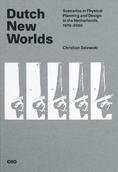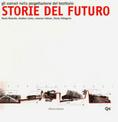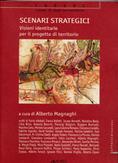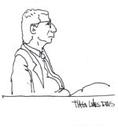large scale plans & projects inclusive processes call for papers call for articles smart city social capital settlements habitability downtowns progetto urbano energy landscape safety & security populations tourism European policies cities innovation creativity Cohesion open position job premio letteratura urbanistica outskirts & suburbs public policies
Dutch New Worlds
Scenarios in Physical Planning
and Design in the Netherlands,
1970 - 2000
Christian Salewski | Designed by Studio Joost Grootens
One of the most established instruments to foresee the consequences of our decisions of today on tomorrow in planning is “scenario building”. In 1980's in Netherlands the elite of Dutch planning started to use this instrument to convince people about the future plans. But the quest to reshape the Netherlands as a whole failed dismally. However this attempt caused a new wave for imaginations of future and criticism among people and experts of different disciplines.
This book is the story of how scenario thinking changed urbanism and physical planning, from its beginning in the late 1960s to its height in the 1990s. It shows how most grand scenario projects came to nothing because of overambition and misuse. It also shows how, today, scenarios remain powerful tools for focused and transparent design research to create better cities and regions. Told from the perspective of an architect and urbanist, this history of ideas holds fundamental lessons for planners, designers, and policy makers - and for our next decisions that will shape our future.
CONTENTS:
Foreword
Introduction
Scenarios and the Scenario Method
• Thinking About the Unthinkable
• Scenarios, the Paranoid-Critical Method and Decision-Making
• Futurology and Its Techniques
• Scenarios as Planning Method: the French ‘Prospective’
The Scenario of the Unacceptable 1971
The Scenario Method 1975
• Trends and Threats: Scenarios for Public Policy
The Image of the Future in Dutch Physical Planning and Design
• Dutch Water Works and Large-Scale Engineering
• From Architecture to Socio-Spatial Constructions
Making Society: Support for Physical Planning Policy
• Scenarios for National Physical Planning 1971–1983
• The Development of the Southwestern Netherlands
• Scenarios for the Urbanisation Report
• Manual for Designing Scenarios 1981
• The Significance of Explorations of the Future for Physical Planning 1981
• The Future of Randstad Holland 1983
• Scenarios as Planning Device: Limits of Control
Mechanisms of Variaton: Models and Design Choices
• Evolution of Form: Almere Models 1970–1975
Explorations Concerning the Development of the New Town Almere 1970
Explorations 2. Urban Area Almere 1972
Almere 1985 1974
Almere in the Regional Frame: Spatial Structure Alternatives
• Instant Alternatives: IJplein Reference Collages 1979–1983
• Scenarios as Option Generation Device
Relative Utopias: Visualising Contradictory Objectives
• Hopes and Fears: Markerwaard Scenarios 1970–1981
Explorations Markerwaard 1974
Plan Waterlely 1974
Markerwaard Report 1976
Working Hypothesis Structure Plan IJsselmeer Area 1979
Concept for the Structure of the IJsselmeer Area 1981
Nowhere Land 1987
Another Light on the Completion of the Zuiderzee Project 1972
• From Options to Alternatives to Visions
Exploring Visions: Testing Political Decisions and Consequences
• Models and Forecasts: Trend Scenarios 1955–1977
Future Models By the Central Planning Agency
The Next Twenty-Five Years (ATV) 1977
• Value Patterns: Policy Scenarios 1980–1986
Policy Oriented Explorations of the Future (BTV) 1980/1983
Spatial Explorations, Three Sketches (NNAO) 1986
• Scenarios as Analytical Device
Design as Politics: Campaigning for Makeability
• Ideas Market: Planning as Entrepreneurship 1983
• Lobbying for Design: The Netherlands Now as Design 1985–1989
• The Netherlands in 2050 According To the NNAO
Careful Netherlands
Dynamic Netherlands
Critical Netherlands
Relaxed Netherlands
• Scenarios as Communicative Device
Stages for Action: Constructing Situations
• Negative Utopia: Critique Through Radicalisation
Situationism and Radical Architecture
Eropolis 1987
New Urban Frontieres, Los Angeles Alexanderpolder New York 1993
Pig City 2001
• Ideal Cities of Pluralism: Frameworks for Uncertainty
Office for Metropolitan Architecture – Early Projects 1972–1989
Agribusiness in the Haarlemmermeerpolder 1987
Wildlife, a Thought Experiment for the Emptiness in the Randstad 1993
Buckthorn City 1995
• Scenarios as Thought Experiments
Scenario Machine: Popularity and Disillusion
Scenarios as Tools
• List of Abbreviations
• Dutch Future and Spatial Studies
• Plans and Documents Concerning the Markerwaard
• Corpus Scenario Studies
• Corpus Scenario Theory
• Interviews and Conversations
• Bibliography
• Image Sources
• Register
• Acknowledgements
ABOUT THE AUTHORS:
Christian Salewski is Senior Assistant and Lecturer for Urban Design at ETH Zurich. He studied architecture at TU Berlin and EPFL Lausanne and practiced architecture and urban design in Rotterdam and Berlin. He holds a Dr.sc. from ETH Zurich.
Online resources and links




Planum
The Journal of Urbanism
ISSN 1723-0993
owned by
Istituto Nazionale di Urbanistica
published by
Planum Association
ISSN 1723-0993 | Registered at Court of Rome 4/12/2001, num. 514/2001
Web site realized by ChannelWeb & Planum Association | Powered by BEdita 3





